 Howard J. Brown
Howard J. Brown
Issue 125, November 21, 1973
New York City's former chief health officer created a sensation when he came out as gay in front of 600 colleagues at a symposium on sexuality. At the time The Advocate described it as the biggest boost for gay liberation in three years. Brown penned an article for the magazine about his decision.
"It is one measure of how society has really oppressed me, that though I had been active in the fight for the poor and for civil rights, it never occurred to me that I could fight for the rights of the homosexuals. The gay freedom fighters redefined my previous feelings of shame at being a homosexual into a sense of rage that society could do this to me and so many of the people I loved."
 Michael KearnsIssue 150, November 6, 1974
Michael KearnsIssue 150, November 6, 1974The actor, who'd recently appeared on
The Waltons as a college friend of John-Boy's, surprised fans of the wholesome television drama when he allowed his photo to be used on the cover of a faux-autobiographical 1975 book called
The Happy Hustler and went on a book tour posing as the hustler, actually a fictional creation. Kearns, who appeared on the cover of
The Advocate three times, went on to establish himself as a force in Los Angeles theater, and he made history in 1991 by coming out on national television as the first openly HIV-positive actor. In a 1989
Advocate feature on notable comings-out, he reflected on the impact of
The Happy Hustler. For more on Kearns and his current relections on sex scandals, fatherhood, and the
Happy Hustler check this out.
"I had come out on a personal level. That book brought me out on a professional level. If my instincts were ever right in any area, it was that that would happen. It did, and saved my life, my career, everything." Dave Kopay
Dave Kopay
Issue 185, March 10, 1976
The former NFL running back made national headlines when he came out in an interview for The Washington Star's controversial "Homosexuality in Sports" series. He wrote an impactful memoir, The David Kopay Story, published in 1977, and he spoke with The Advocate about his plans for it. In 2006 he was a featured announcer at Gay Games VII in Chicago.
"I realize there are other people like me, younger people especially, who need to know the truth, to know that there are successful gay people in every walk of life, including the life of a pro athlete. It would have helped me to know others."
 Barry SandlerIssue 337, March 4, 1982
Barry SandlerIssue 337, March 4, 1982The screenwriter of the landmark first gay-themed film from a major studio,
Making Love, spoke about feeling as liberated as the characters he created.
"[Doing Making Love] has had a profound and recognizable effect on my personal life. Once you acknowledge to the world, once there are no more secrets, you're no longer concerned about going to a party with another guy. I don't give a shit anymore. This is who I am." Sir Ian McKellenIssue 500, June 7, 1988
Sir Ian McKellenIssue 500, June 7, 1988The esteemed British stage actor spoke to
The Advocate to protest England's discriminatory Clause 28. After coming out, McKellen, who had already headlined the gay-themed play
Bent, continued to star in classic works by Chekhov and Shakespeare and became the first openly gay man to be knighted. After receiving an Academy Award nomination as Best Actor for portraying tortured gay filmmaker James Whale in the 1998 biopic
Gods and Monsters, McKellen would host
Saturday Night Live, appear as himself on an episode of
The Simpsons, and eventually become one of the world's most recognizable movie stars with roles in franchises such as the
Lord of the Rings and
X-Men films.
"My self-esteem has never been higher than the day when I first told the media I was gay." Bob Paris, Rod JacksonIssue 546, March 13, 1990
Bob Paris, Rod JacksonIssue 546, March 13, 1990Professional bodybuilder Paris revealed he's gay during an interview with
Ironman magazine in 1989. The two had a commitment ceremony the same year and frequently lectured about LGBT issues. The couple eventually broke up in 1996.
"The reason Bob and I can get through so much prejudice and hate is because when people come up to us and say, 'Is this your friend?' we say 'No, this is my spouse. This is my husband.' We look them in the eye, and they always respect us. They've never had a gay person with that much self-respect say that to them."
Sheila James KuehlIssue 553, June 19, 1990This child actress turned politician spent her youth on TV, starring as the irrepressible Zelda Gilroy on
The Many Loves of Dobie Gillis and turning up on other shows, such as
The Beverly Hillbillies and
The Ed Sullivan Show. She recalled for us that hearing that her
Dobie Gillis spin-off wouldn't be picked up coincided with her realization that she was a lesbian. No matter, Harvard eventually came calling, and she earned a law degree there. She later served in the California Assembly and Senate from 1994 to 2008, and her accomplishments there include strengthening hate-crimes and antidiscrimination laws, especially as they deal with gender identity and sexual orientation.
"I was told by the director that the president of CBS turned the pilot down because Zelda was too butch. I didn't really react when he said that, but it sent a cold chill down my back." Sandra Bernhard Issue 554, July 3 1990
Sandra Bernhard Issue 554, July 3 1990The outspoken bisexual comedian spoke to
The Advocate about her attention-grabbing relationship with Madonna and surprised many by revealing she was at the time dating a man.
"There is no closet [for me] to come out of; there's no concern. With the exception of political figures who are gay and voting antigay, which is a whole different thing, I think outing is just an invasion of people's privacy." Pete WilliamsIssue 584, August 27, 1991
Pete WilliamsIssue 584, August 27, 1991Not everyone comes out voluntarily. In one of the most controversial cover stories in The Advocate's history, Michelangelo Signorile outed Bush Sr.'s closeted assistant secretary of Defense for public affairs. Pentagon spokesman Pete Williams took self-loathing to new heights by insisting he supported the military's total ban on gays and lesbians in the very same article in which The Advocate outed him. Within a year, Bill Clinton, then a candidate for president, cited a gay "Pentagon official" while promising to overturn the ban. Williams went on to become a correspondent for NBC News who viewers now regularly see speed-reading Supreme Court rulings as we await breaking news.
"So many gay men seem to know Williams and know of his homosexuality that it becomes questionable as to whether he was ever in the closet. While several men tell of friendships and sexual encounters with him, one man says they had a two-month intimate 'boyfriends' relationship." k.d. langIssue 605, June 16, 1992
k.d. langIssue 605, June 16, 1992She broke new ground by coming out on the cover of
The Advocate in 1992, but the Canadian country-pop musician wanted the world to know she wasn't ready to be called an activist simply for loving other women. The next year lang appeared on the cover of
Vanity Fair, seated in a barber chair while supermodel Cindy Crawford stood behind her and appeared to be giving lang a good shave -- on her face. She would later become a fierce advocate for LGBT rights.
"I don't feel political about my preference. I just don't. I'm sorry to disappoint you hard-cores, but I don't! I think as a human being we all feel discrimination at some time, we all feel oppression. There should be strong examples in the subculture, and I think there should be people fighting for our rights. But I don't feel like it's my passion. I feel like it's a part of my life, my sexuality, but it's not--it certainly isn't my cause. But also I have never denied it. I don't try to hide it like some people in the industry do." Melissa EtheridgeIssue 660, July 26, 1994
Melissa EtheridgeIssue 660, July 26, 1994The Grammy Award-winning rocker spoke to
The Advocate a year and a half after she came out while celebrating the inauguration of President Clinton and revealed what had been her greatest fear about being open. Two ex-wives and four kids later, Etheridge is still a leading equality activist.
"You think there's some big black hole you're going to fall into and that all of a sudden people who have loved you all of your life aren't going to love you anymore. And I'm here to tell you that that does not happen. If it did change anyone's mind about me, then that's their problem -- and they weren't there for me to begin with." Michael FeinsteinIssue 664, September 20, 1994
Michael FeinsteinIssue 664, September 20, 1994The popular composer-musician answered our very direct questions about his sexuality.
"I don't think it is necessary for everybody to identify themselves in terms of sexual proclivity because life is so much more than that -- even though I understand the need to do that because of the repression and lack of acceptance of the gay world." Janis IanIssue 683, June 13, 1995
Janis IanIssue 683, June 13, 1995Following a life she described as full of abuse and doubt, the Grammy Award-winning singer-songwriter, later a columnist for
The Advocate, officially came out in an interview with fellow musician Melissa Etheridge.
"I was outed in The Village Voice in 1976. I went to bed for a whole day and hid under the covers. It took me a long time to figure out what to do. I had a boyfriend, and then I had a girlfriend. I really fell in love -- like boom -- the first time when I was 20. She was living with somebody, so I wound up in a menage a trois. That's not a good way to discover anything." Dirk ShaferIssue 685, July 11, 1995
Dirk ShaferIssue 685, July 11, 1995While it's no surprise that a
Playgirl centerfold is secretly gay, the magazine's 1992 Man of the Year shared his feelings about pretending to be straight during publicity duties.
"What I went through is really a situation everyone goes through. At some time or another, everyone has to hide behind a mask, present themselves in another way to be accepted." Rob HalfordIssue 759, May 12, 1998
Rob HalfordIssue 759, May 12, 1998The powerful lead vocalist for the Grammy Award-winning heavy metal band Judas Priest came out publicly as gay on MTV News in February 1998. Three months later the "beast from Judas Priest," as his fans called him, discussed the reason he hesitated so long. In 2010, Halford reflected on the impact his coming-out had on the rock music world, saying it helped destroy the myth that heavy metal bands don't have the capacity for being more accepting and compassionate.
"I think it's true, when you become more successful in the music world, you probably go more in the closet. You go under the rug in the closet because of the phobia that still exists in rock music. You could lose a record deal or fan base. It's really difficult for any musician to come out." Billie Jean KingIssue 765-66, August 18, 1998
Billie Jean KingIssue 765-66, August 18, 1998After dodging questions about her orientation for 17 years, the tennis legend spoke candidly and offered advice for young LGBT athletes considering coming out.
"It will help set them free when they do, but I also understand the circumstances surrounding them. They're not put on earth to be martyrs for the cause; they have to want to come out. It depends on your own culture, where you work, where you live. Each person's circumstances are unique, so I think it's impossible to judge whether another person should come out. You just hope they will on their own time and own terms. And, hopefully, we'll make the world a safer place so young people will feel safe to deal with their sexuality and whatever else." Billy BeanIssue 801, December 21, 1999
Billy BeanIssue 801, December 21, 1999The former major league baseball player came out in 1999, four years after retiring from the sport. He spoke to
The Advocate about his involvement with Project Yes, a Florida-based organization that aids LGBT teens.
"I can see now what it means to help give someone a sense of self-worth. I know all about the self-hatred and shame and how hard it is to get to a point where you feel good about yourself. You can be an ordinary kid who on the outside has a lot going for him but on the inside feels rotten because you have been trained to think negatively about yourself. I'd love to think I helped a few 15-year-olds feel like they are cool even though they are different." Esera TuaoloIssue 877, November 26, 2002
Esera TuaoloIssue 877, November 26, 2002The former tackle for Minnesota Viking became the third NFL player to come out publicly and said he was inspired partly by reading
The David Kopay Story."I feel light as a feather, although I'm 350 pounds." B.D. WongIssue 891, June 10, 2003
B.D. WongIssue 891, June 10, 2003While rebounding
from the death of one child and the life-threatening
illness of another, the accomplished Broadway and TV star came out publicly after writing
Following Foo, a document of his struggle.
"Some days I think, You're never going to work again. I think there's real reason to worry, as anyone reading this magazine can understand. The book, for me, means I'm calling into question the whole career thing. But that's OK. Part of what this book is about is letting the path go where it goes." Sheryl SwoopesIssue 951, November 22, 2005
Sheryl SwoopesIssue 951, November 22, 2005The Houston Comets star, a three-time Olympic gold medalist and three-time MVP of the WNBA, is considered one of the greatest female basketball players in the history of the sport. In 2005, Swoopes told the world she was in a long-term relationship with another woman and landed a lucrative endorsement deal with Olivia Cruises. In 2011 newspapers reported that Swoopes was now engaged to a man, but the athlete refuses public comment.
"I don't want to say I've been living a lie, but for the past seven, eight years I haven't been able to be comfortable in my own skin, around my own friends and family."
 John AmechiIssue 981, March 13, 2007
John AmechiIssue 981, March 13, 2007The 6-foot- 10 former NBA center discussed whether he expected other closeted players to come out. Amaechi eventually became a coming-out spokesman for the Human Rights Campaign.
"No, I call on them to try and live more openly, as much as they are comfortable doing and feel safe doing. I call on them not to lie and become [outwardly] homophobic. There's a temptation there: To try and protect yourself, you become the opposite. But people have to come out to their own comfort." Michael UrieIssue 1035, February 2010
Michael UrieIssue 1035, February 2010The actor, who played Vanessa Williams's fashion-conscious assistant on ABC's
Ugly Betty and was about to open in
The Temperamentals, a play about the Mattachine Society, told us he generally eschews labels but identifies as queer.
"I've never said I was straight, and I'm not saying I'm gay now. I never lie, and I've never shied away from the topic. I've certainly chosen through my work to do things that promote the rights of LGBTQ people. I am not a hypocrite -- certainly not now." Sean HayesIssue 1037, April 2010
Sean HayesIssue 1037, April 2010The Emmy Award-winning actor insisted during his first interview with
The Advocate -- a dozen years after he gained fame as Jack McFarland on NBC's landmark sitcom
Will & Grace -- that he was never "closeted."
"I am who I am. I was never in, as they say. Never."
Chaz BonoIssue 1049, June-July 2011Sixteen years after coming out as a lesbian in
The Advocate, the activist son of entertainers Sonny and Cher came out as a
transgender man, and shared his reason for being so public with his transition.
"I want to help people avoid going through what I went through. I don't want people to wait until they're 40 to be who they are." 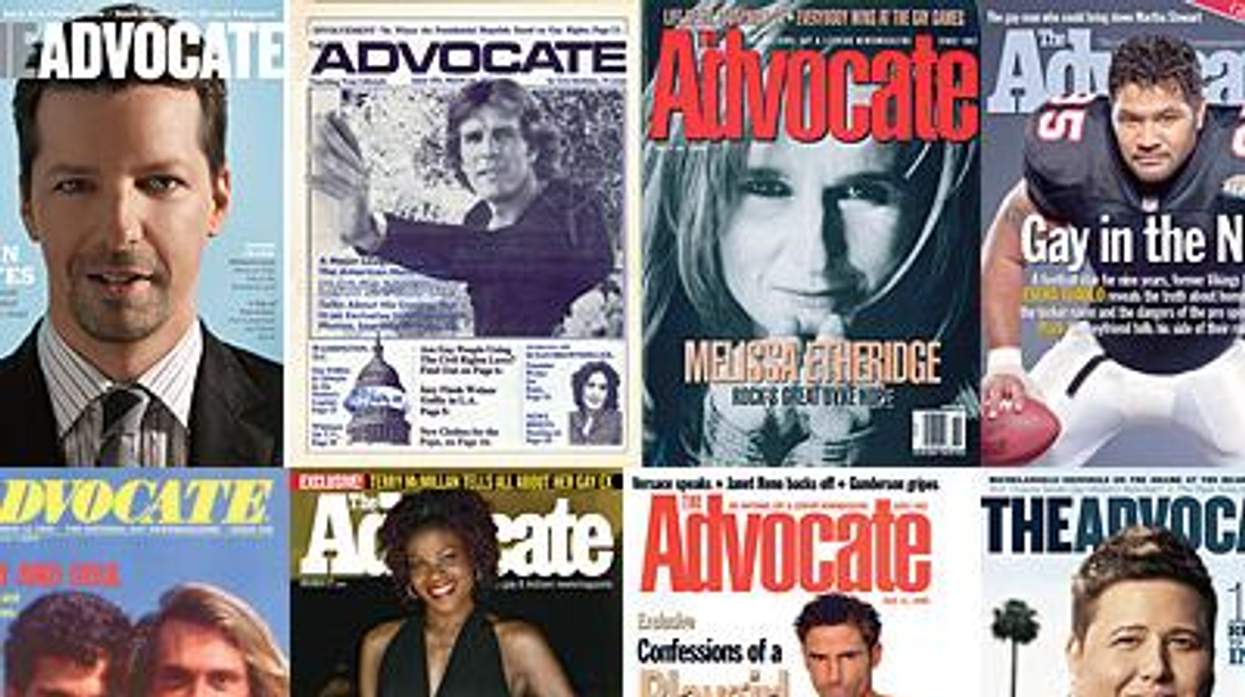

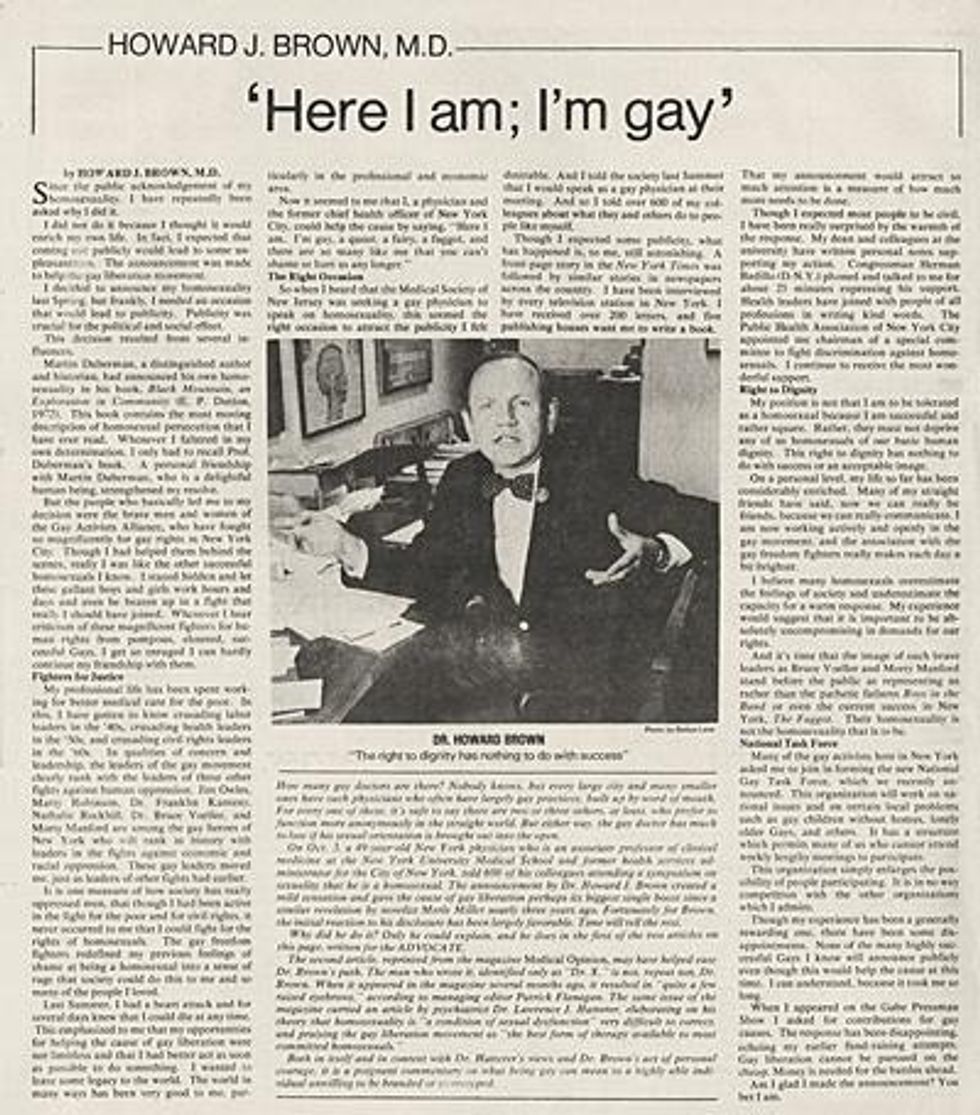
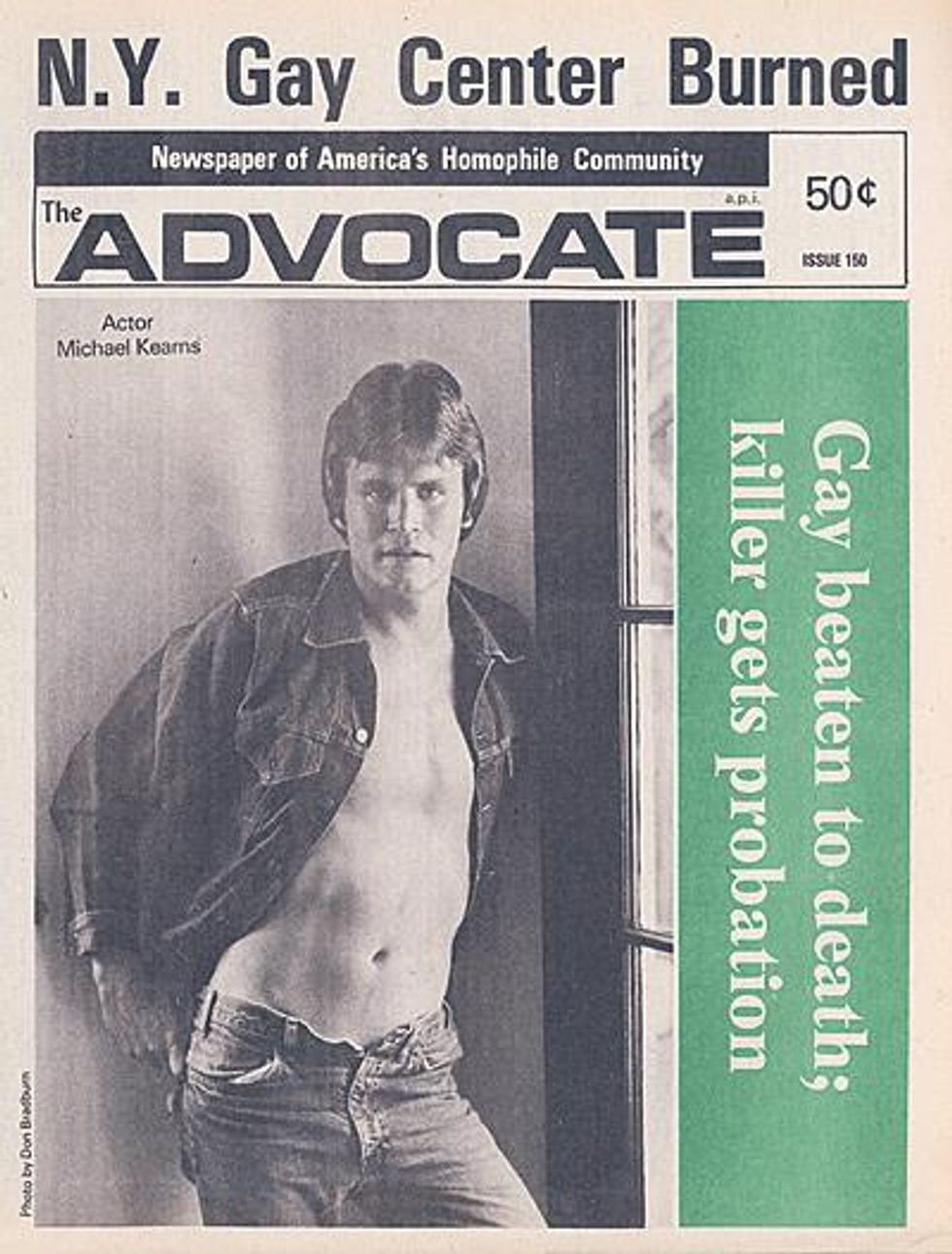
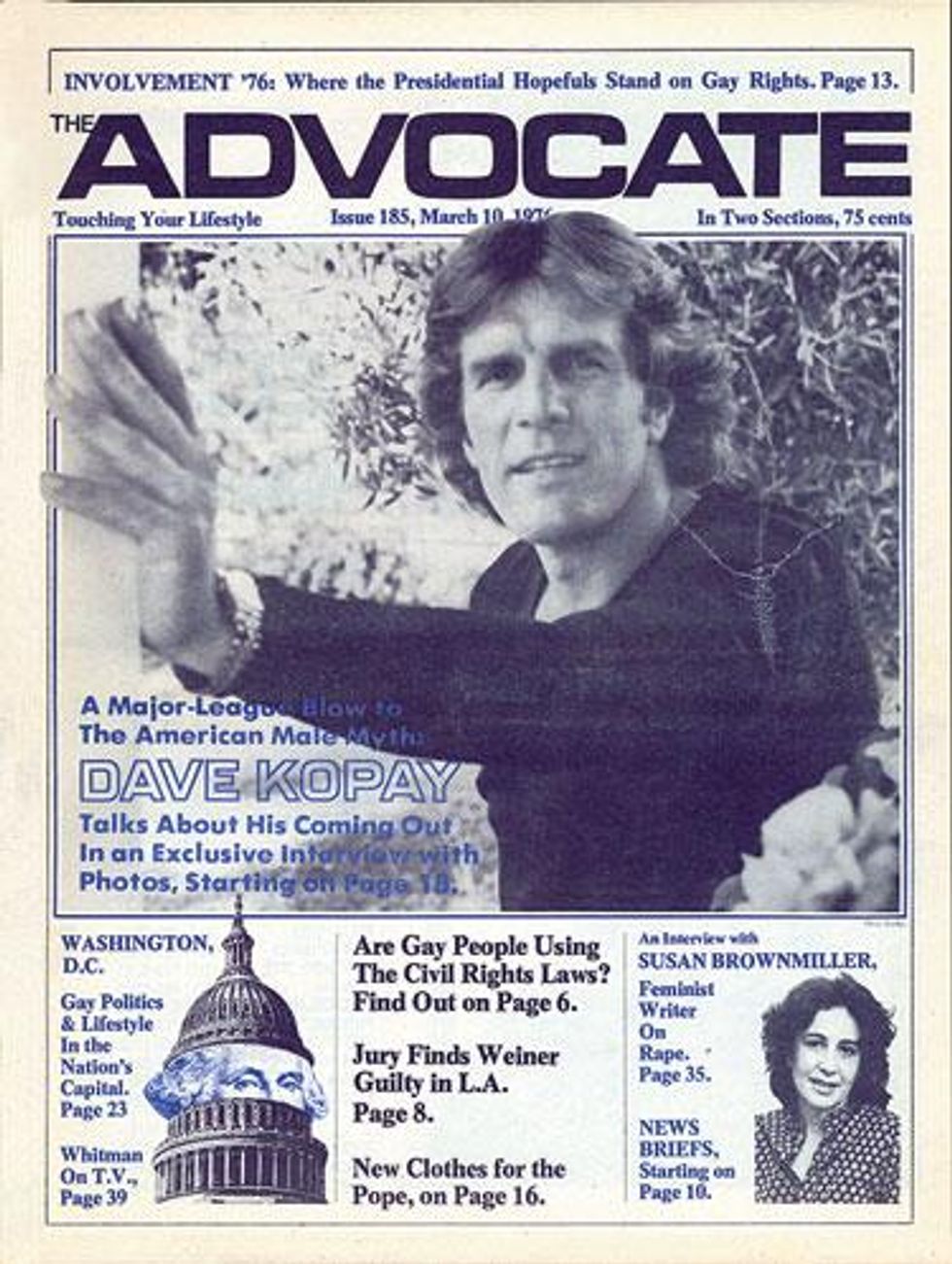
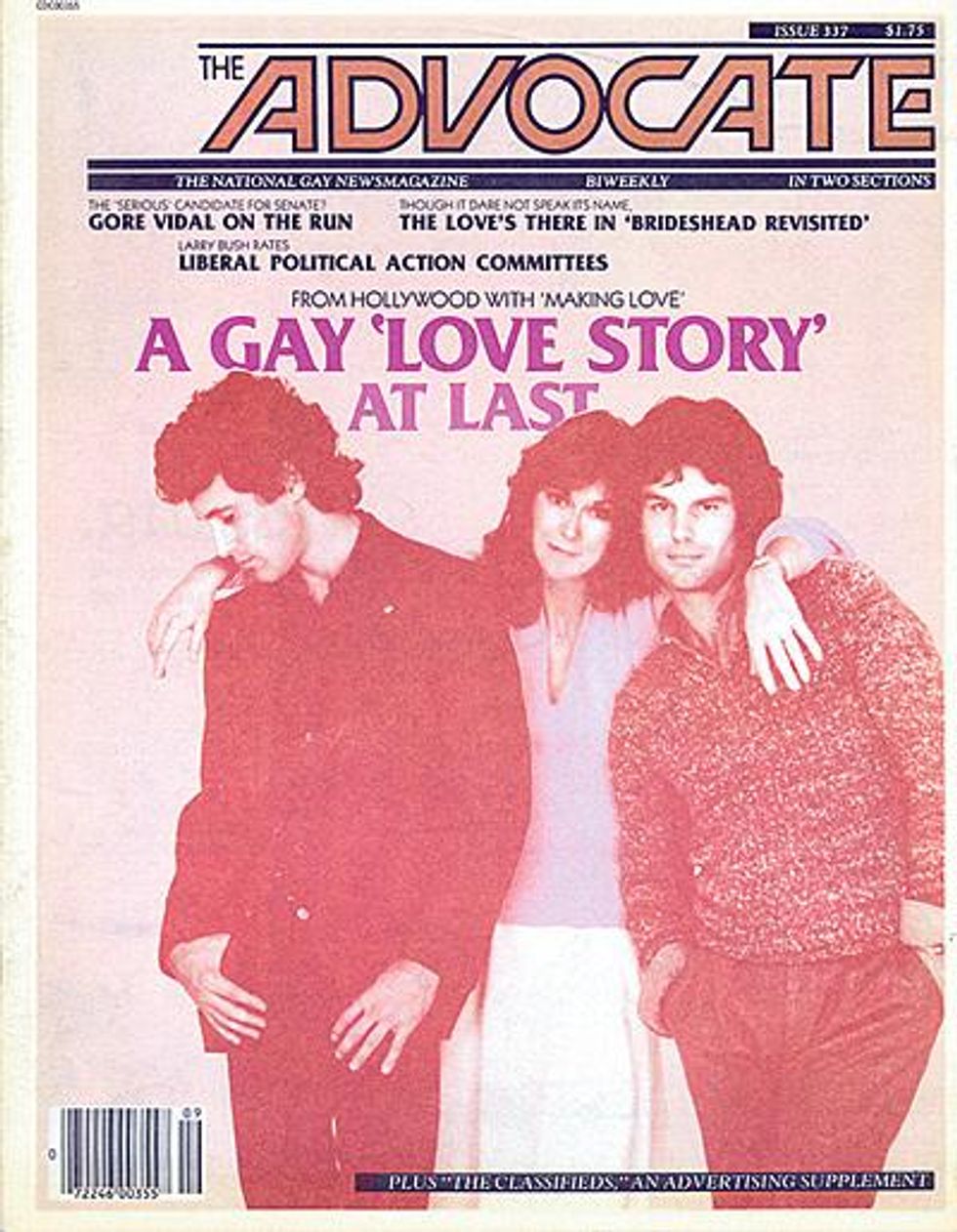
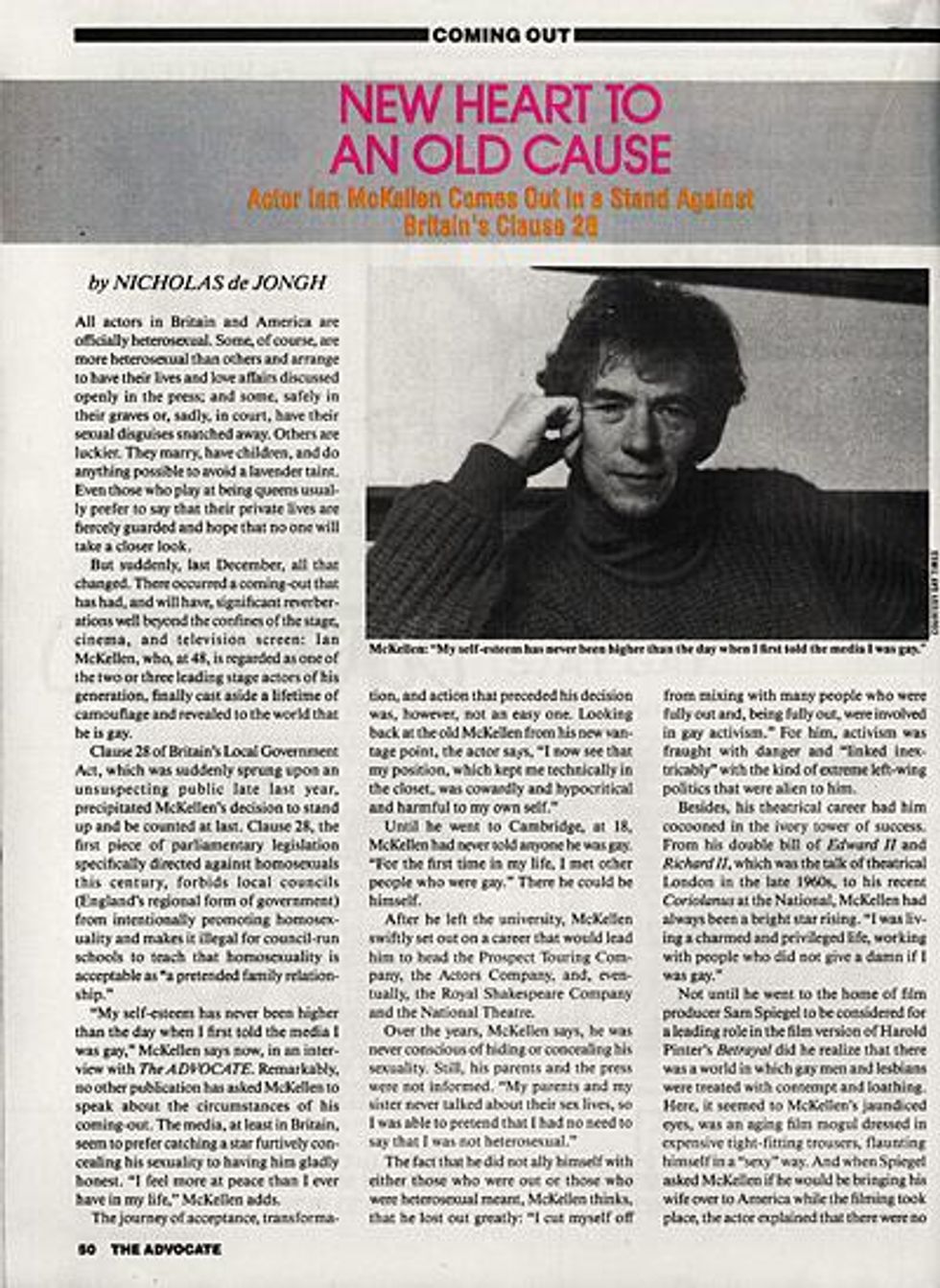
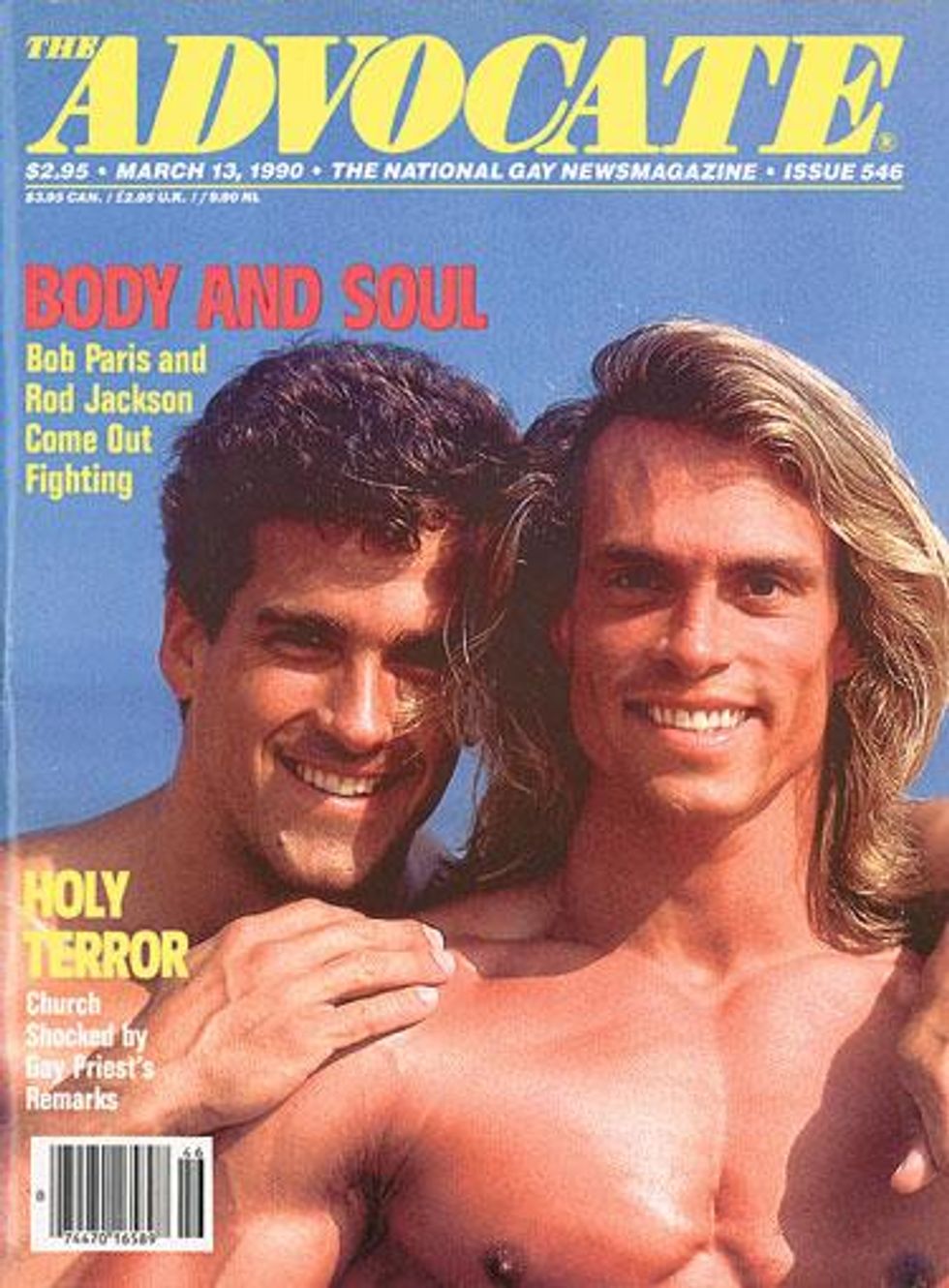 Bob Paris, Rod Jackson
Bob Paris, Rod Jackson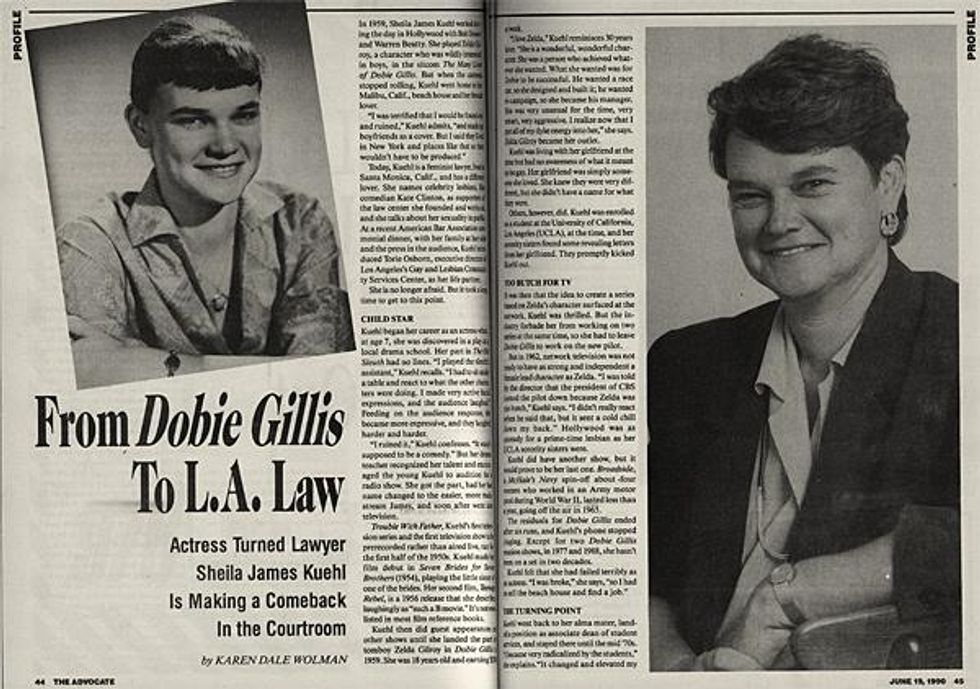
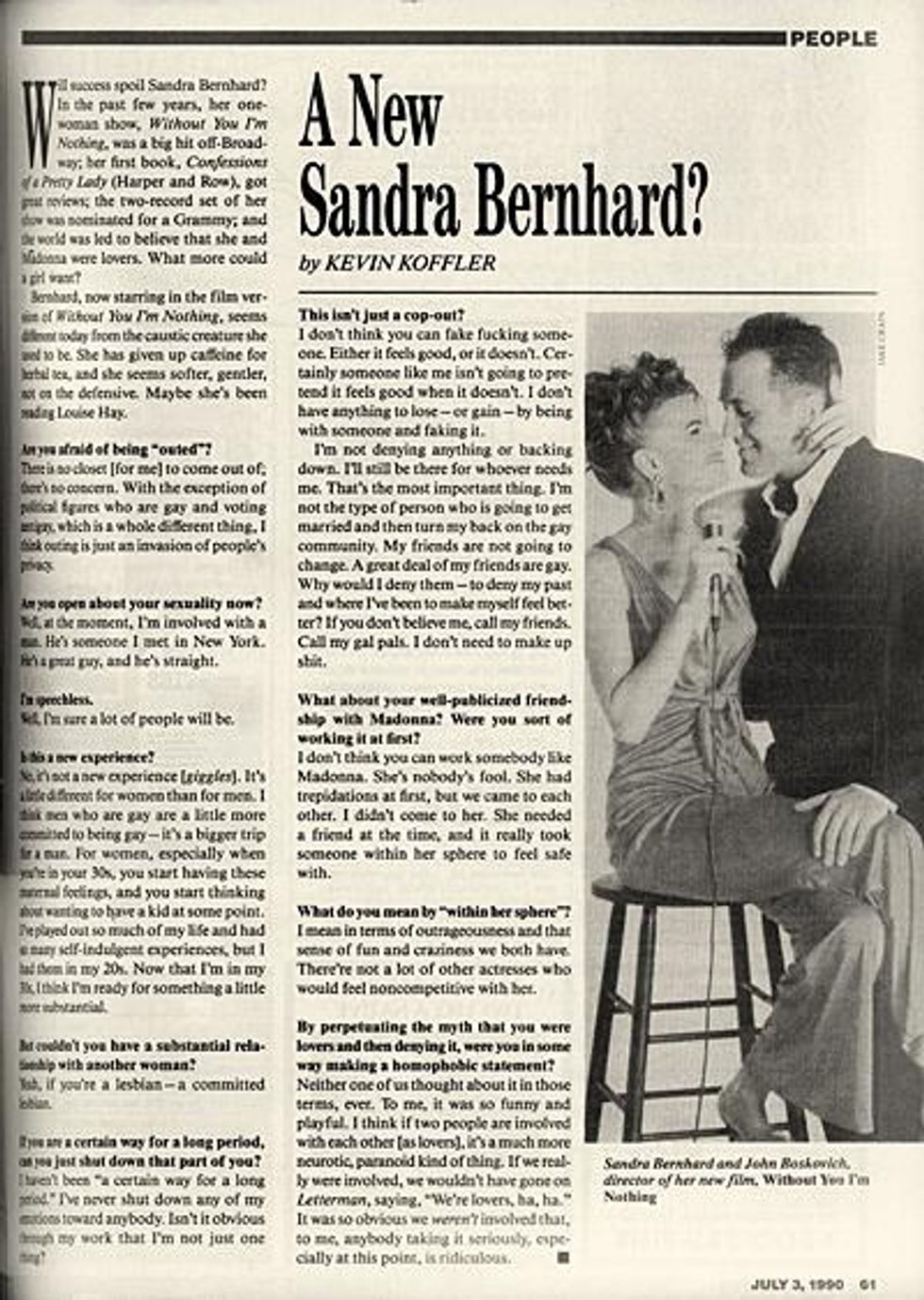
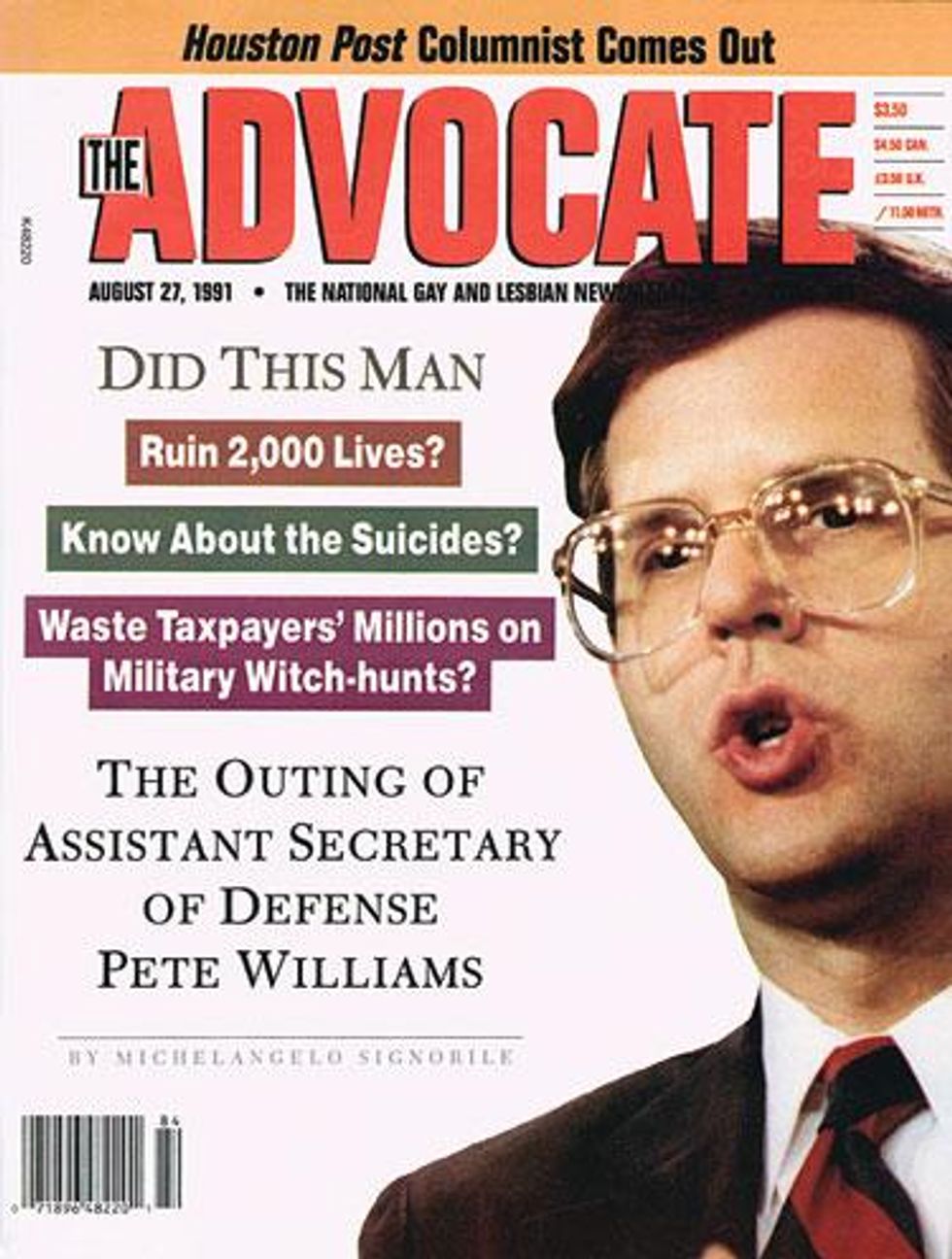 Pete Williams
Pete Williams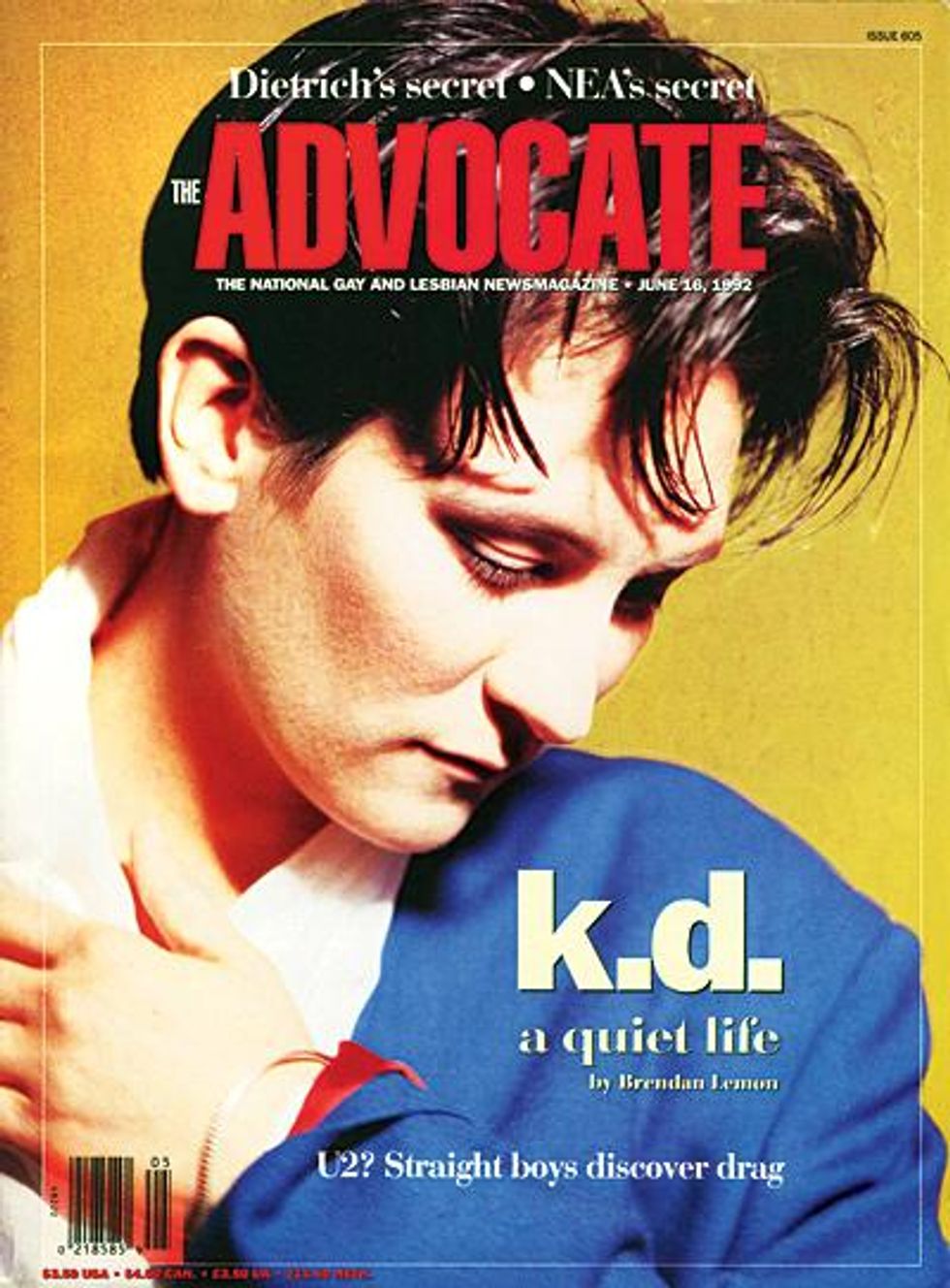
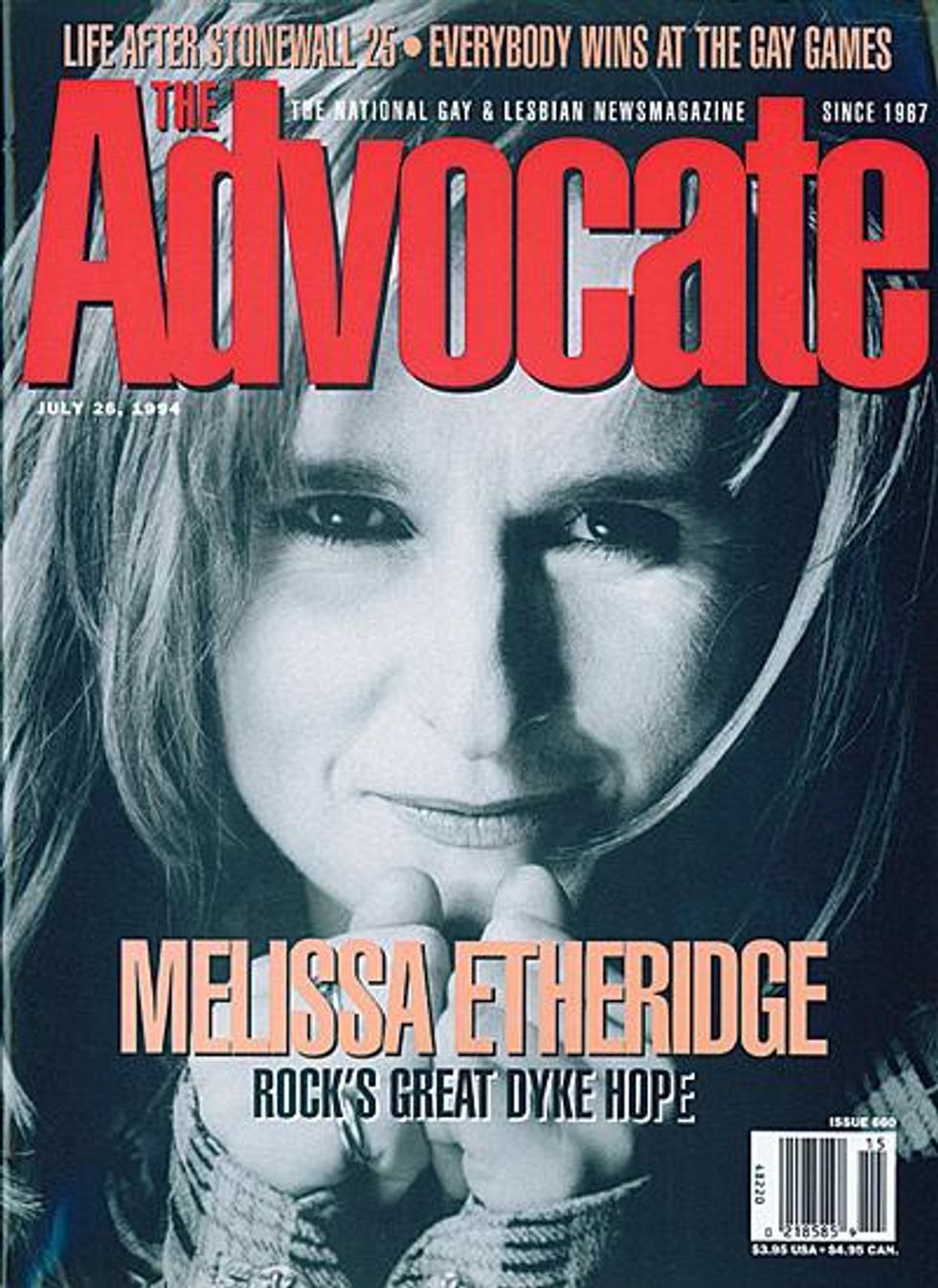
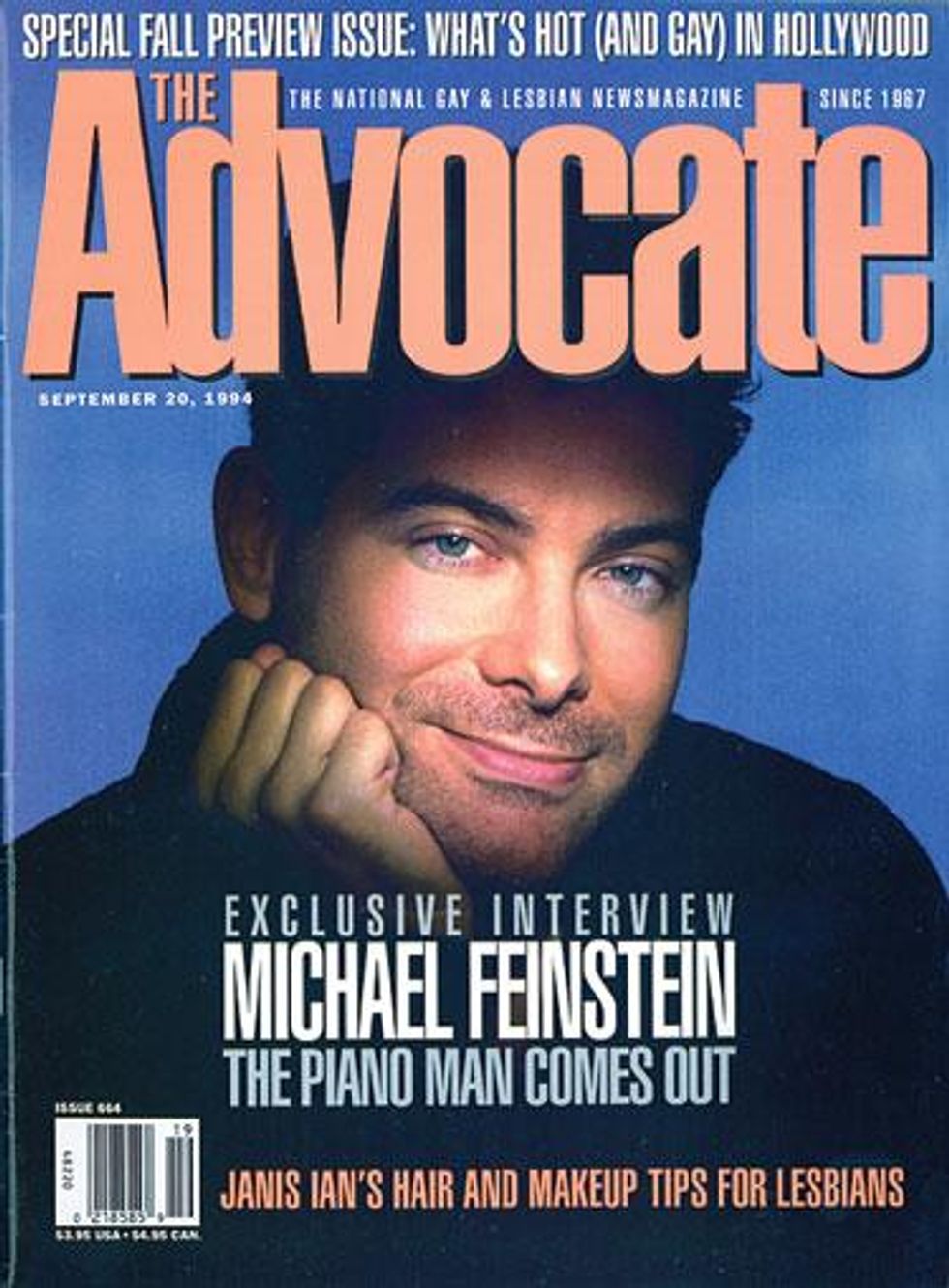 Michael Feinstein
Michael Feinstein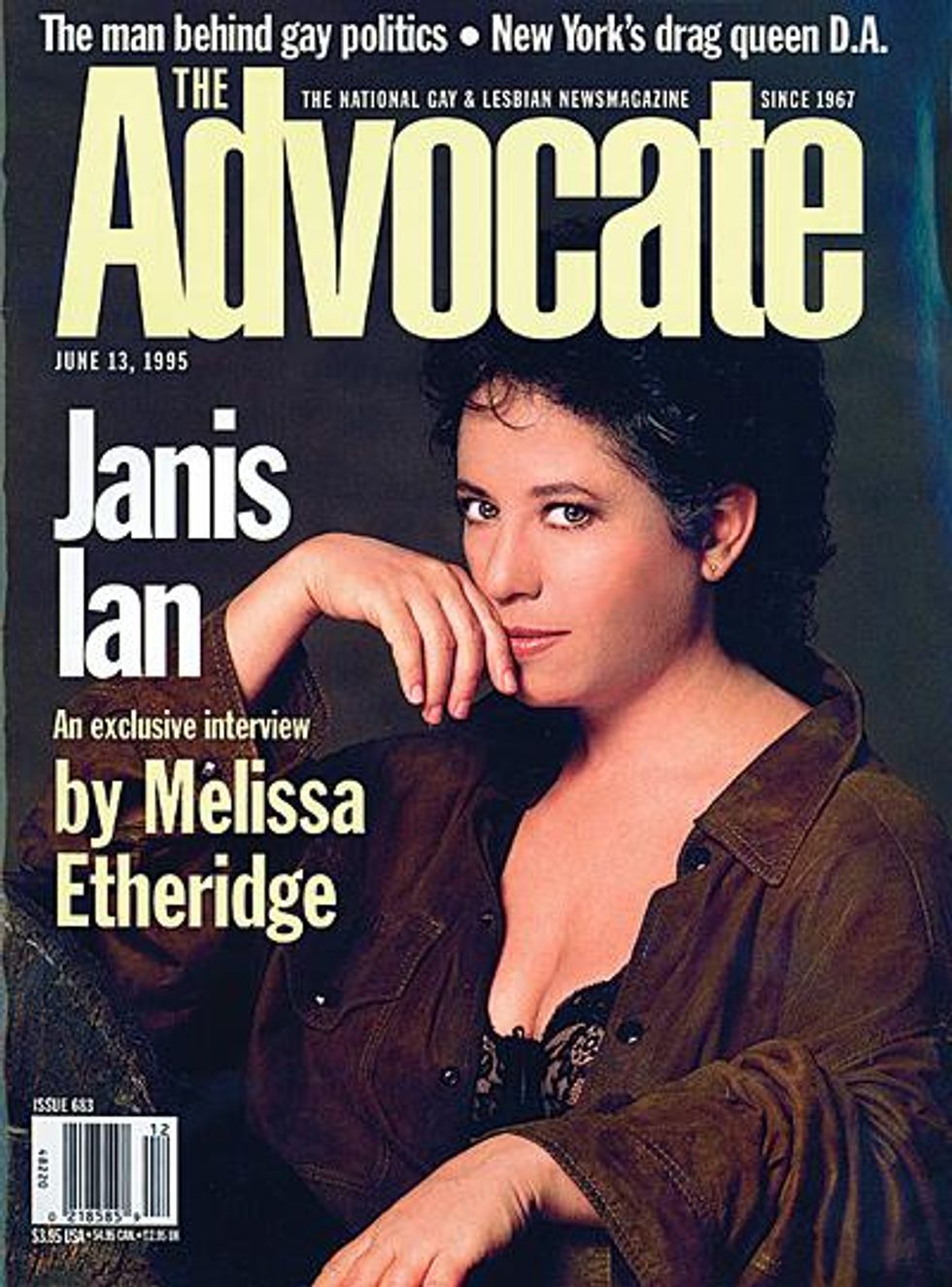
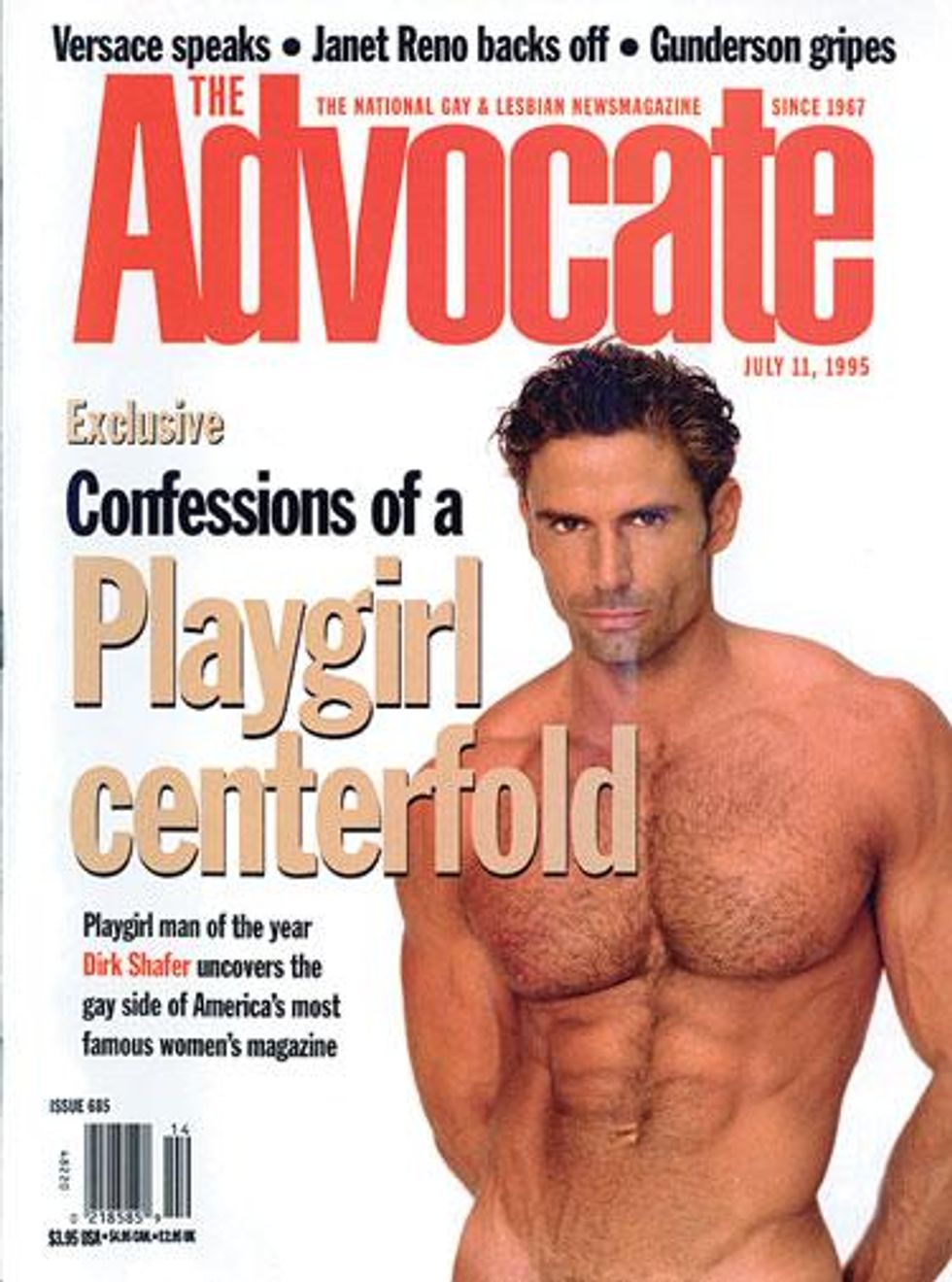 Dirk Shafer
Dirk Shafer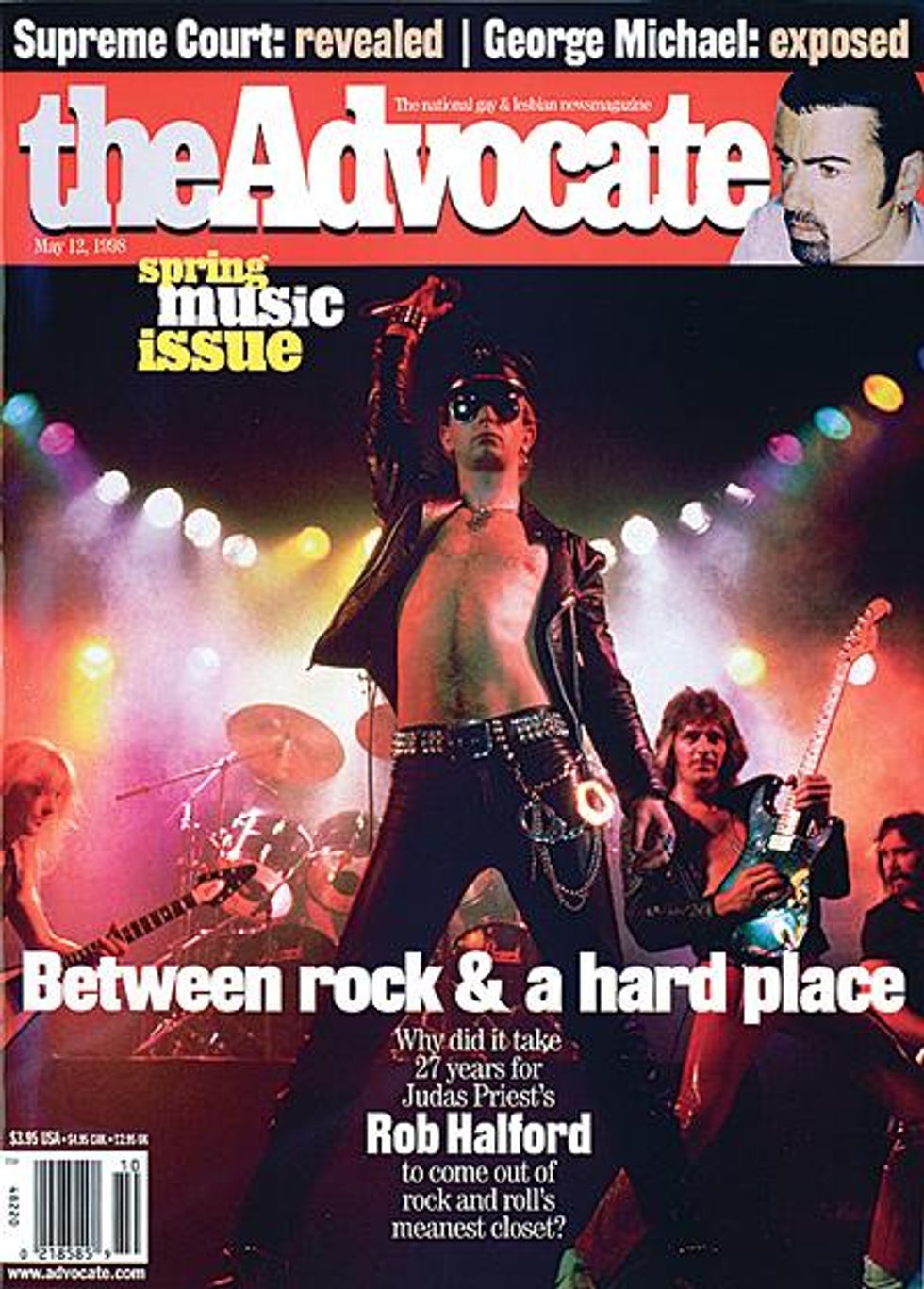
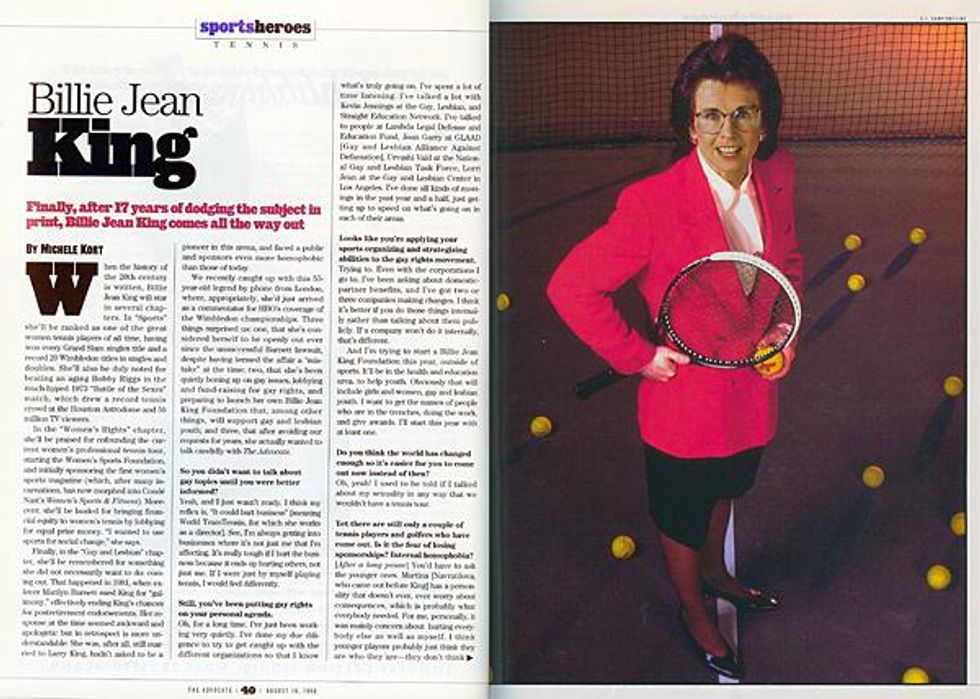
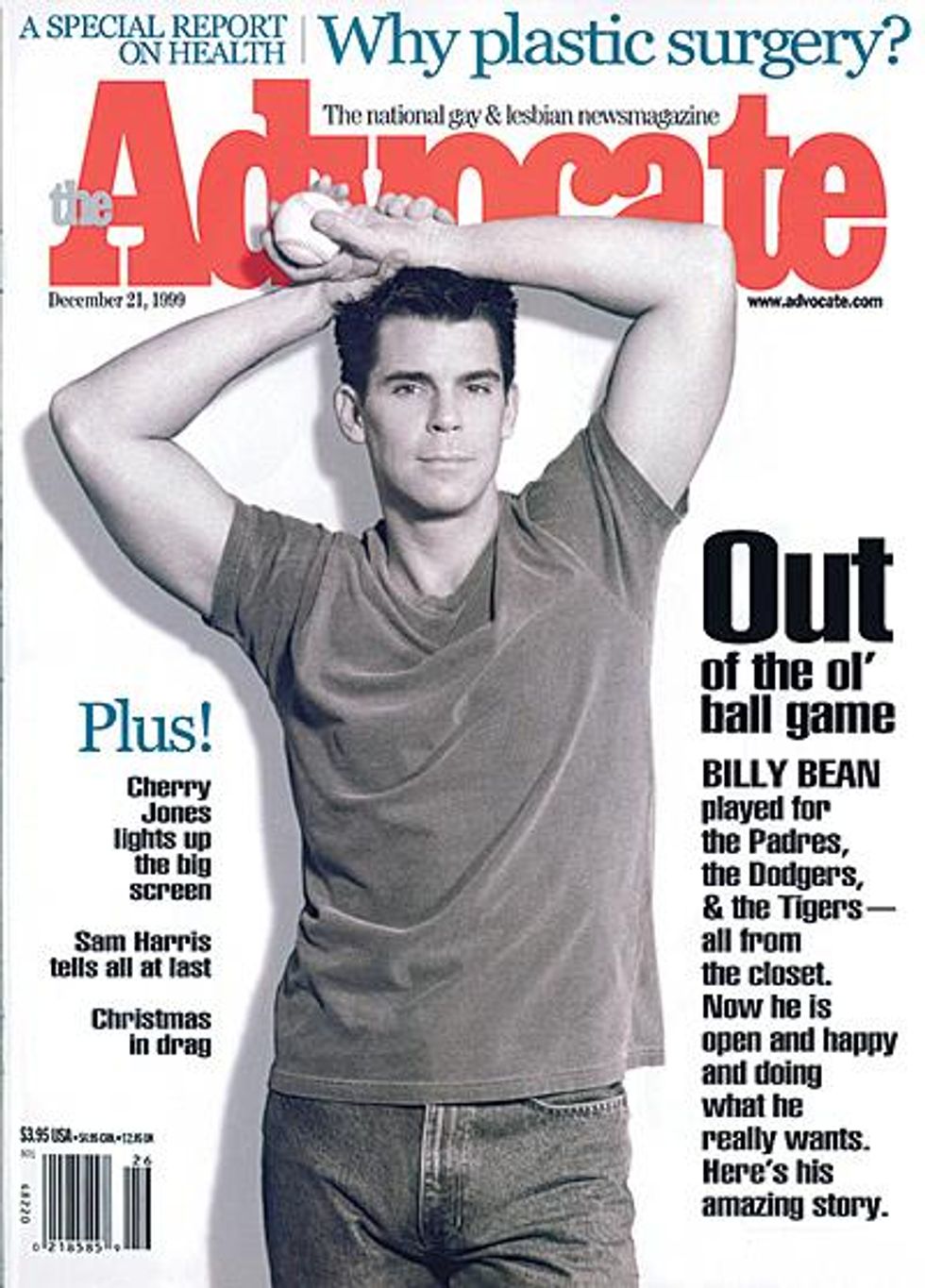
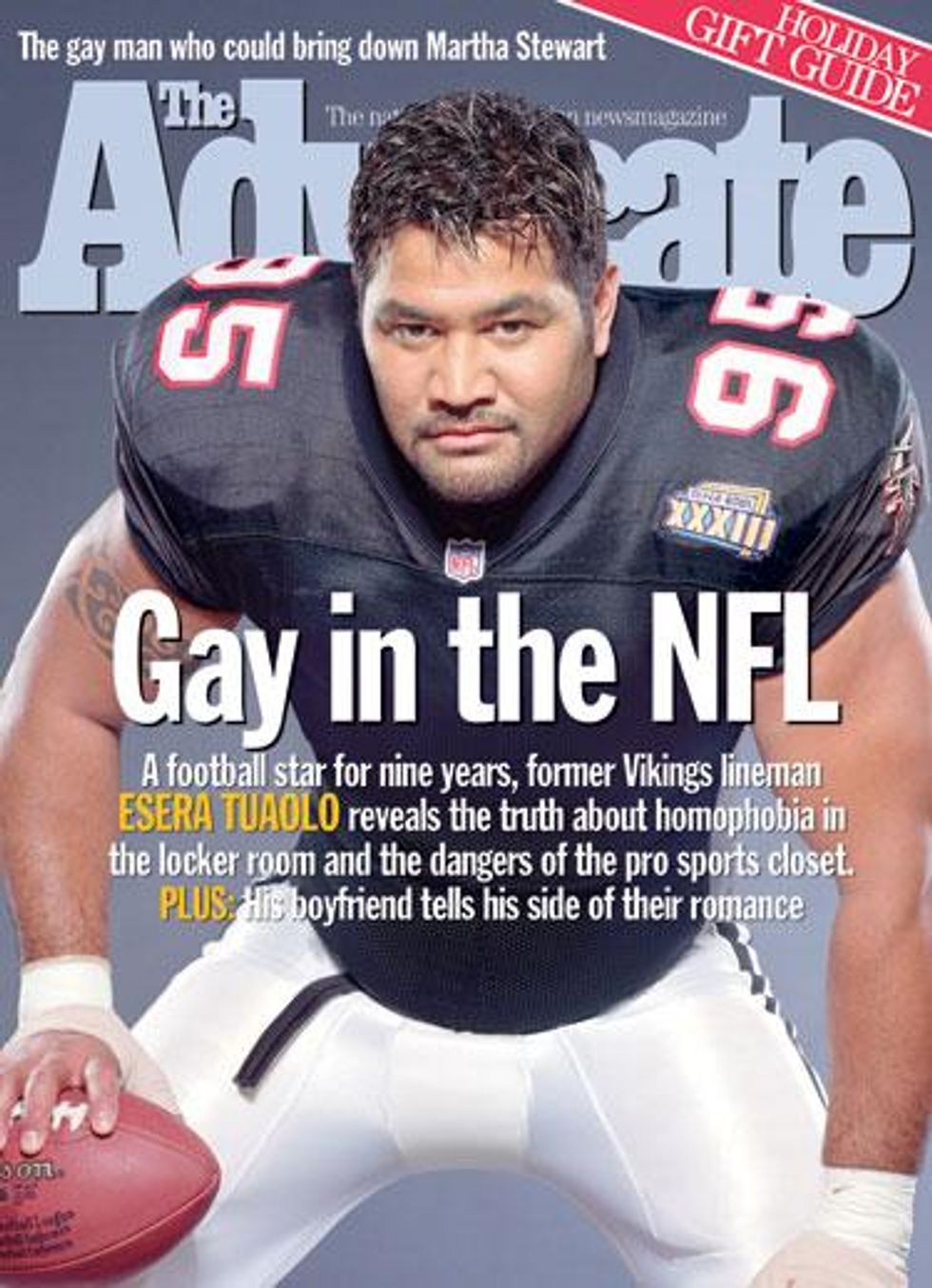
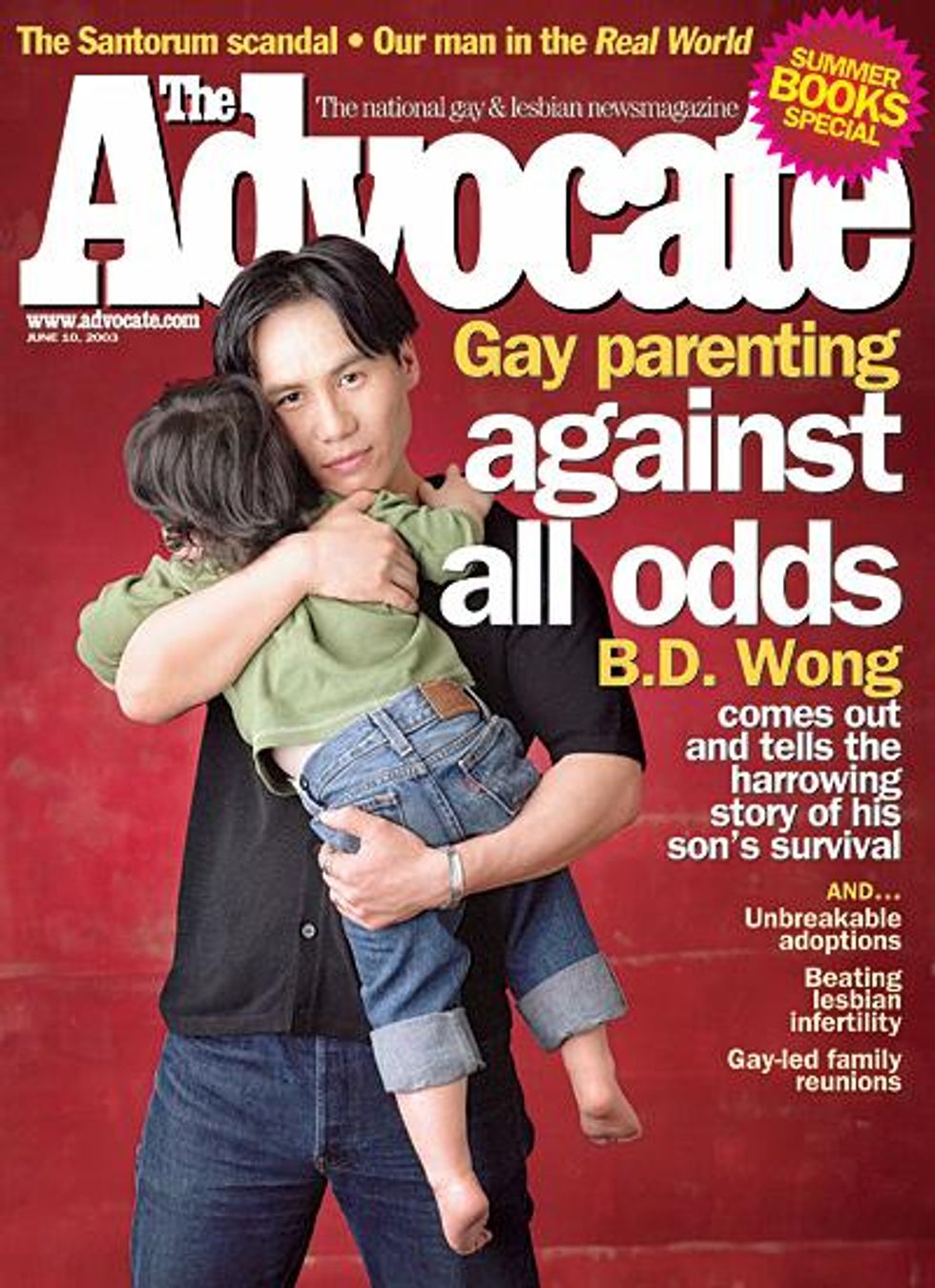
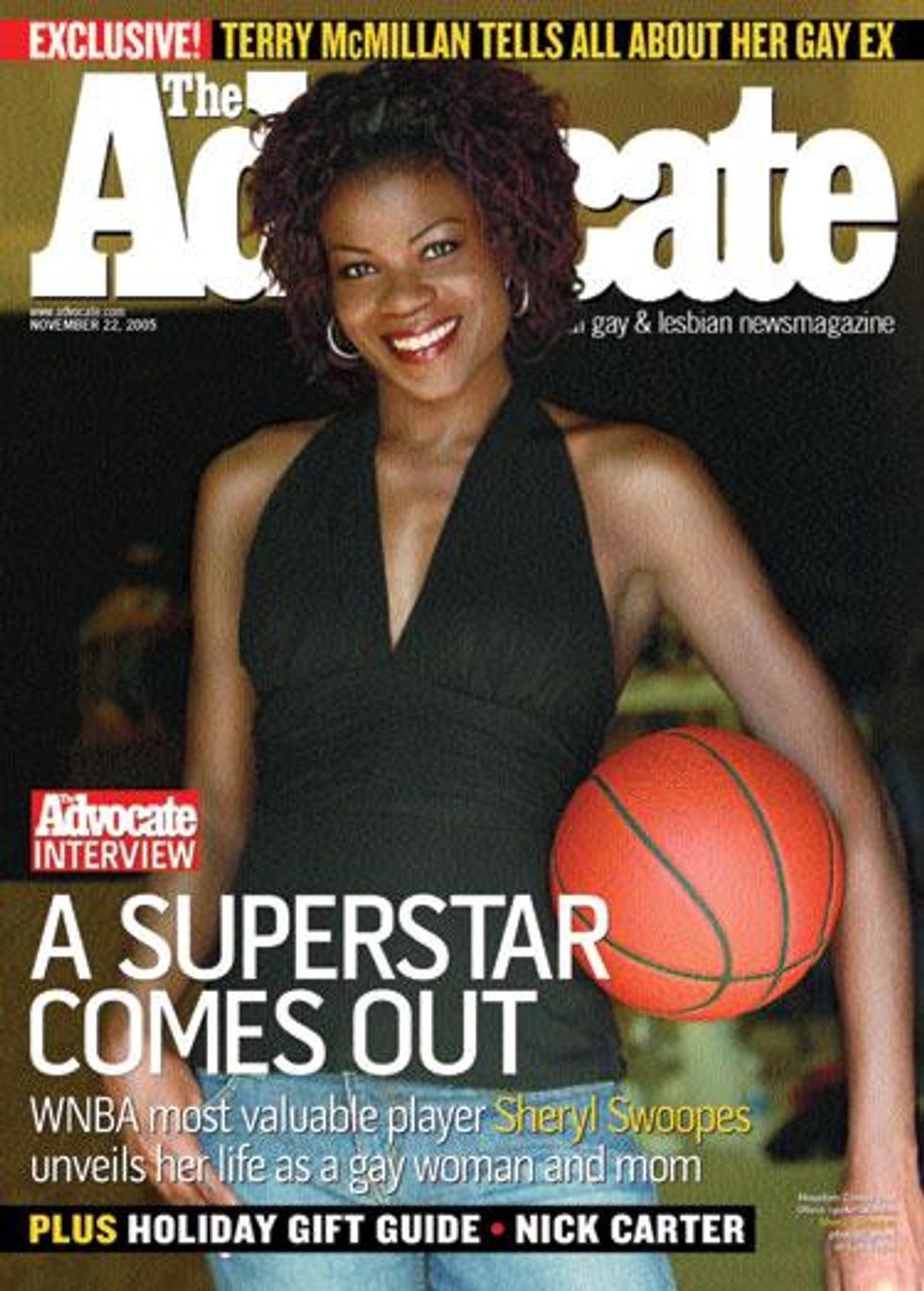
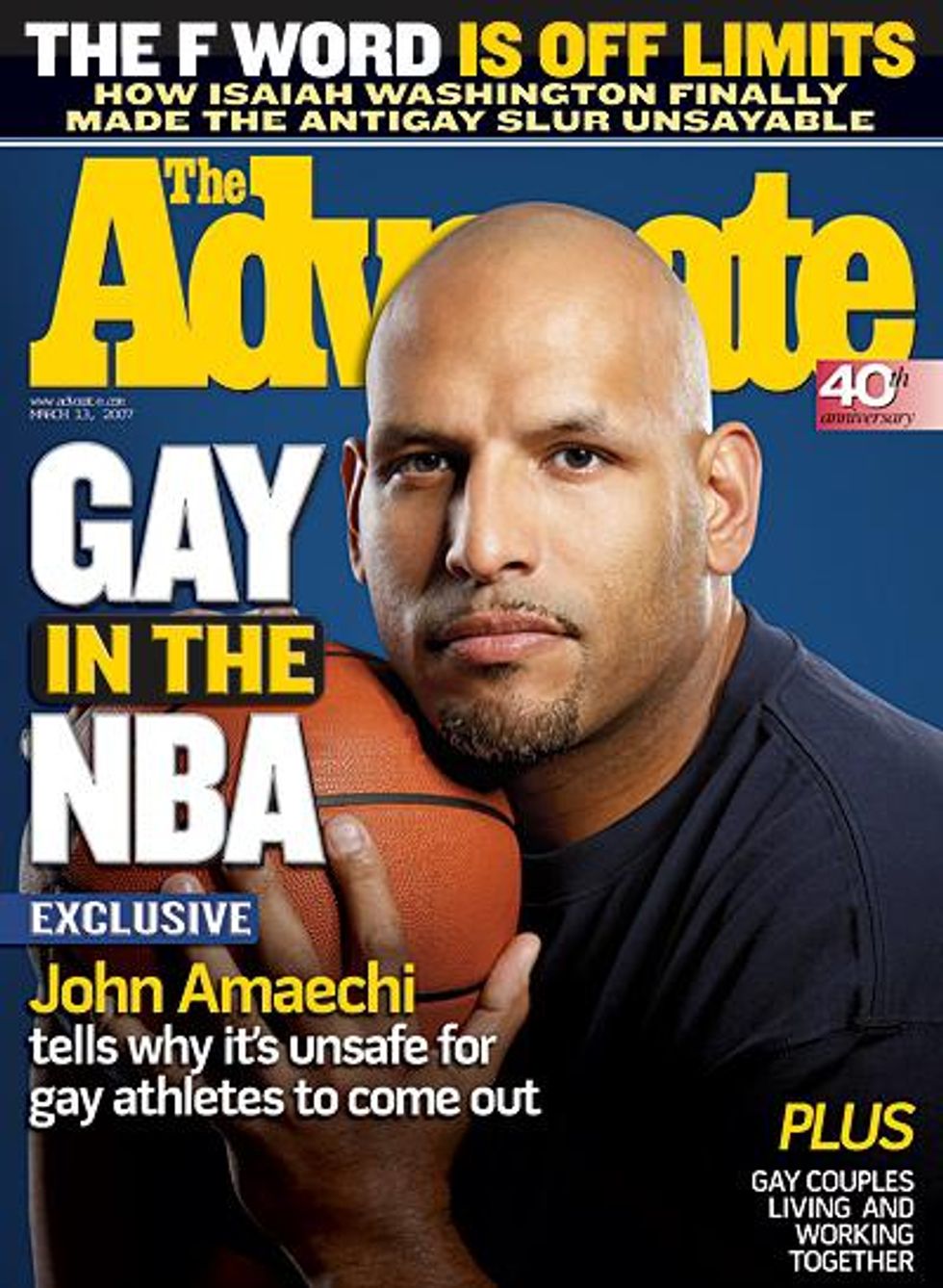
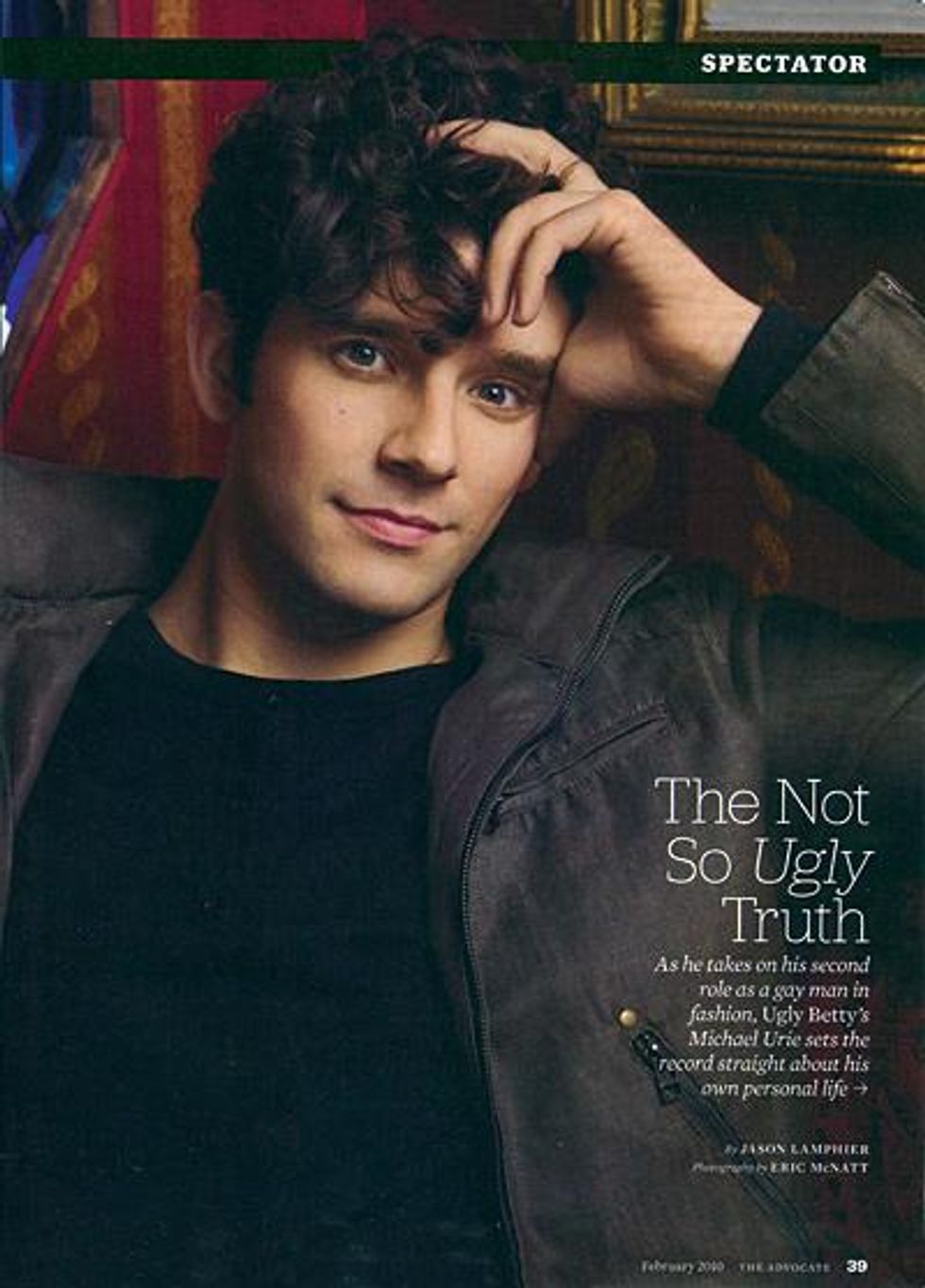 Michael Urie
Michael Urie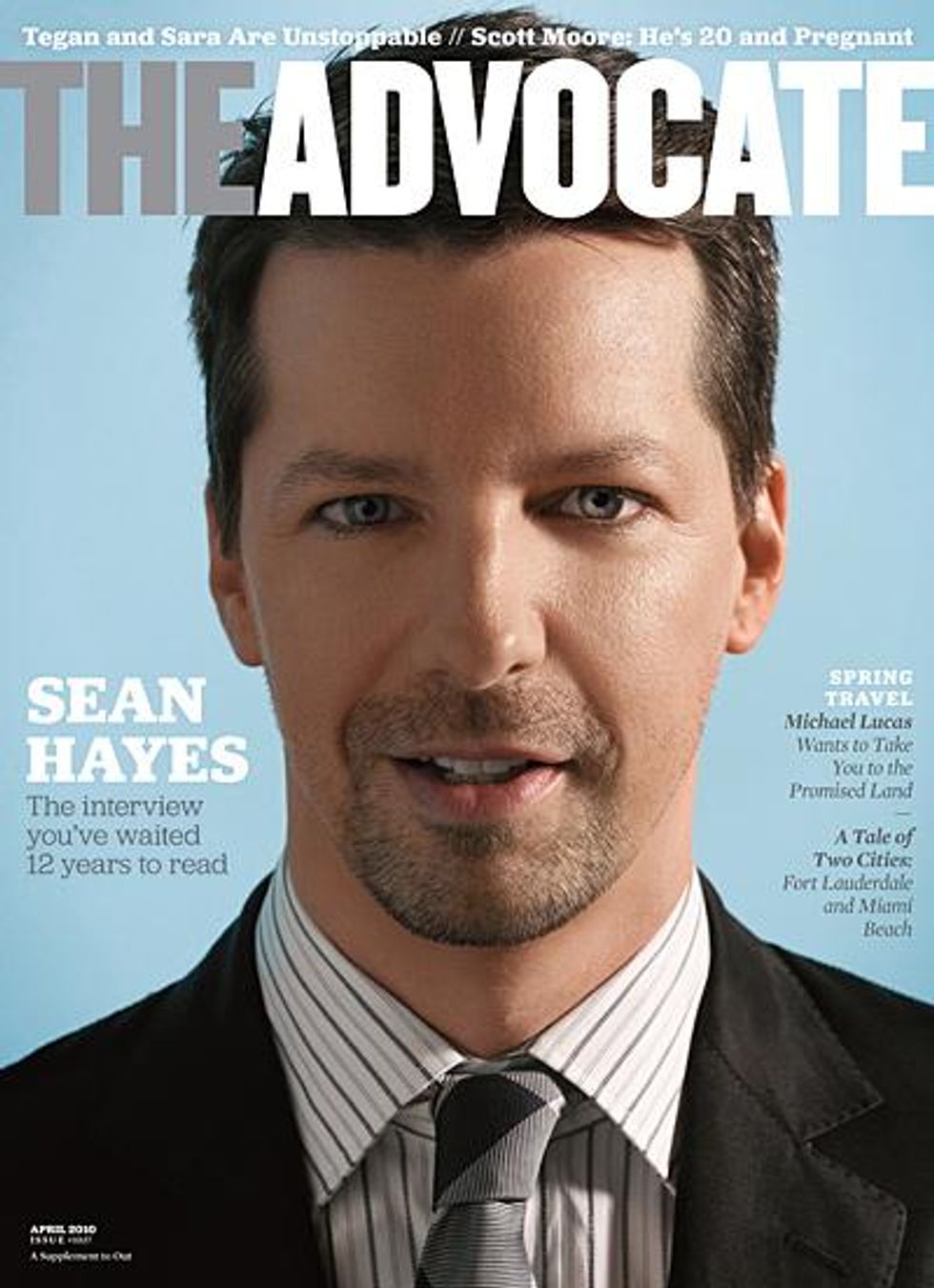 Sean Hayes
Sean Hayes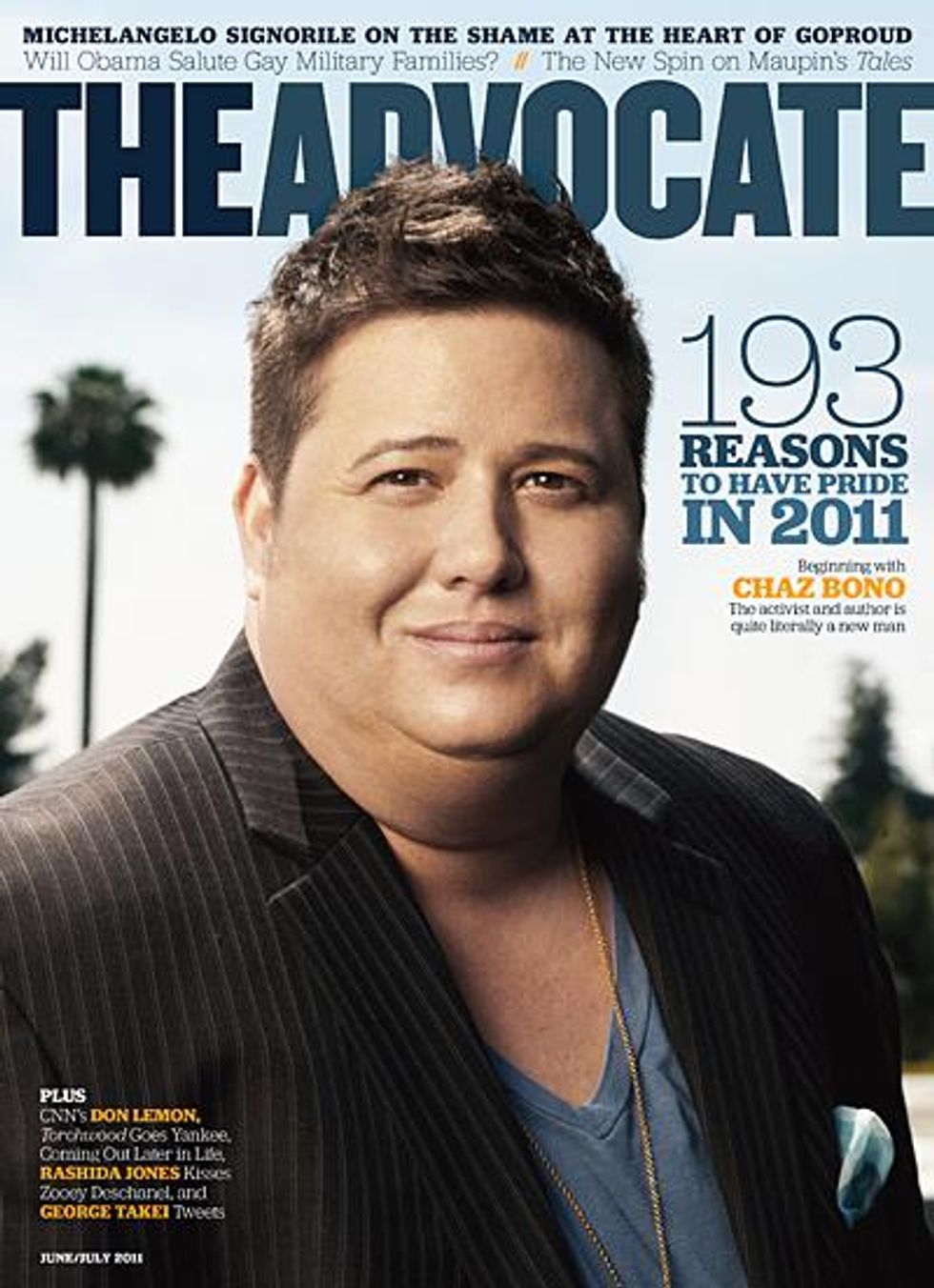
Charlie Kirk DID say stoning gay people was the 'perfect law' — and these other heinous quotes